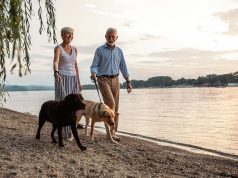Multilingualism emerged as protective factor in cross-sectional and longitudinal analyses
By Elana Gotkine HealthDay Reporter
FRIDAY, Nov. 14, 2025 (HealthDay News) — Multilingualism seems to have a protective role in aging, according to a study published online Nov. 10 in Nature Aging.
Lucia Amoruso, Ph.D., from the Basque Center on Cognition, Brain and Language in San Sebastian, Spain, and colleagues developed biobehavioral age gaps quantifying delayed or accelerated aging in 86,149 participants across 27 European countries to examine the effect of multilingualism on aging trajectories. Individual-level positive and adverse factors were provided in national surveys, while country-level multilingualism served as an aggregate exposure.
The researchers found that biobehavioral factors predicted age (r = 0.49); positive and adverse factors were linked to delayed and accelerated aging, respectively. In cross-sectional and longitudinal analyses, multilingualism emerged as a protective factor (odds ratio, 0.46; relative risk, 0.70), while monolingualism increased the risk for accelerated aging (odds ratio, 2.11; relative risk, 1.43). After adjustment for linguistic, physical, social, and sociopolitical exposomes, effects persisted.
“Embedding multilingualism into public health and educational frameworks holds promise for improving healthy aging on a global scale,” the authors write.
Editorial (subscription or payment may be required)
Copyright © 2025 HealthDay. All rights reserved.








